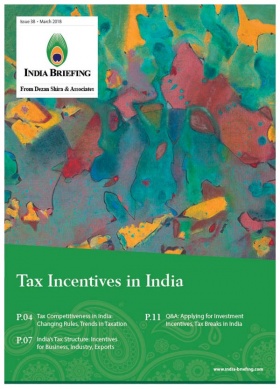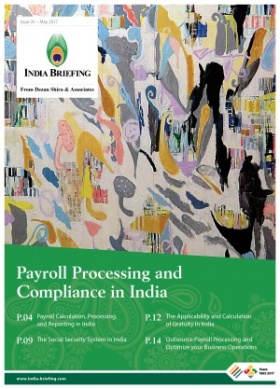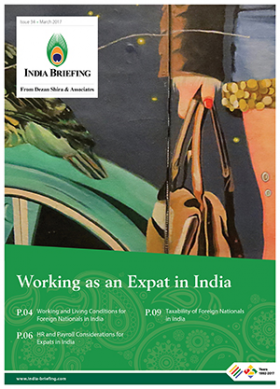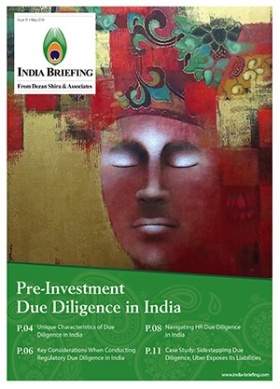India Major Tech Startup Hub, Corporate India Prefers Hiring Via Referrals
India Third Largest Tech-Startup Hub Globally
A new study by Assocham in association with the Thought Arbitrage Research Institute reveals that India has the third largest number of technology-driven startups in the world, after the U.S. and U.K., respectively. Bangalore hosts the largest share of technology startups in India (26 percent), followed by the Delhi National Capital Region (23 percent) and Mumbai (17 percent), while the cities of Hyderabad (8 percent), Chennai and Pune (6 percent each) are emerging as new popular destinations for technology entrepreneurs. Current estimates show that the U.S. has over 47,000 technology startups, the U.K. has over 4500, while India’s tech startups numbered around 4200 as of 2015. Combining both tech and non-tech startups, India and China feature among the five largest hosts, at 10,000 startups each. The U.S. dominates with a total of 83,000 startups.
The Assocham study notes that government initiatives such as ‘Startup India’, ‘Make in India’, and ‘Digital India’ need to be synergized to create an ecosystem that supports technological disruption and innovation. Without this enabling thought, policy, and regulatory infrastructure in place, India will not be able to successfully expand the space for domestic entrepreneurs. Finally, the study recommends tax exemption for R&D to foster new ideas regardless of failure and the introduction of entrepreneurship courses in Indian universities, on the pattern of the Stanford University model.
The Rise of Hiring Via Referrals in Corporate India
An increasing number of companies in India have begun to tap into the employee referral system to meet their hiring needs. According to LinkedIn India, which recently published its study, India Recruiting Trends 2016, around 55 percent of the country’s talent leaders see “employee referral programs as the top source of quality hire”. Leading firms such as Coca-Cola, Infosys, Genpact, Capgemini, Deloitte, Jubilant, and more report that over 40 percent of their hiring are done through referrals.
Towards this, companies have begun adopting technology platforms. Technology major Infosys, for its part, has created a portal where employees track vacant positions and job requirements in real time, and can submit profiles of candidates directly. Deloitte is building an app to streamline and digitize their referral process. Geojit BNP Paribas, a retail financial services provider, uses a software called ‘Workflow’, a process automation of the employee referral scheme developed by its internal technology team. Other examples of non-technology referral solutions include, the Employee Referral Program (ERP) of financial services firm Credit Suisse and Ernst & Young’s “Bring another you”; “Bring your buddy”; and “Refer a friend and Reward yourself”.
The credibility and long-term viability of the referral system emerges from the fact that current employees understand the aspirations of their proposed candidates while also being familiar with the company culture and expectations. HR recruiters also find that varying the hiring process enables them to assess candidates based on attitudes and other personality parameters, rather than solely skillsets that have shorter lifecycles. The system can also improve the gender diversity of the workforce. For example, Lenovo India incentivizes its employees to recommend more women candidates for the same roles. Similarly, Capgemini just launched a ‘recruitHER’ program, where employees recommending female candidates become eligible for a lucky draw. At Coca Cola, a 15 to 20 percent premium is placed on successful referrals of female candidates, which has directly converted into 31 percent of its associates being women.
Online Retailers Express Concerns over GST Rules
The government needs to address the prevailing concerns of online retailers over the implementation of the new Goods and Services Tax (GST) rules. The biggest of these relates to the potential for double taxation. Currently, the draft GST law does not provide for credit on tax paid on returned goods or ‘sales return’. This becomes pertinent because in the Indian e-commerce market, the volume of returned goods can reach as high as 50 percent of sales, on average. Yet, GST law does not provide for any refund or adjustment of the tax already paid on the goods returned by customers. This means that an online seller will pay tax twice if a replacement is provided. Further, if money is refunded to the buyer, a seller will have to pay the tax as no credit is allowed.
As a result, the industry has suggested that the government incorporate refunds and adjustment of tax already paid in sales returns through the mechanism of credit notes raised by the sellers themselves. The government has yet to provide assurance on this front. Moreover, the final version of the law will be framed in consultation with the states, leading to a second major worry – that of the proliferation of a new permits regime. Online retailers are wary of burdensome paperwork as the GST law includes a provision allowing states to seek additional authorization from transporters carrying goods exceeding US$ 744 (Rs 50,000) in value. Tax consultants point to two adverse sets of consequences in this regard. One is the fact that it can lead to states demanding different documents, given the open-ended nature of the provision, and ultimately fragmenting the national market. The second is that it could lead to cumbersome border checks in case of inter-state trade, undermining the benefits of speedier logistics promised under GST. If the GST structure is to succeed, tax invoices should suffice given the new system’s technology enabled tracking of compliance.
About Us
India Briefing is published by Asia Briefing, a subsidiary of Dezan Shira & Associates. We produce material for foreign investors throughout Eurasia, including ASEAN, China, Indonesia, Russia, the Silk Road, & Vietnam. For editorial matters please contact us here and for a complimentary subscription to our products, please click here.
Dezan Shira & Associates provide business intelligence, due diligence, legal, tax and advisory services throughout India and the Asian region. We maintain offices in Delhi and Mumbai and throughout China, South-East Asia, India, and Russia. For assistance with India investment issues or into Asia overall, please contact us at india@dezshira.com or visit us at www.dezshira.com.
- Previous Article India-Bangladesh International Rail Link Project
- Next Article Investing in Lucknow – A Leading Tier II City in India














